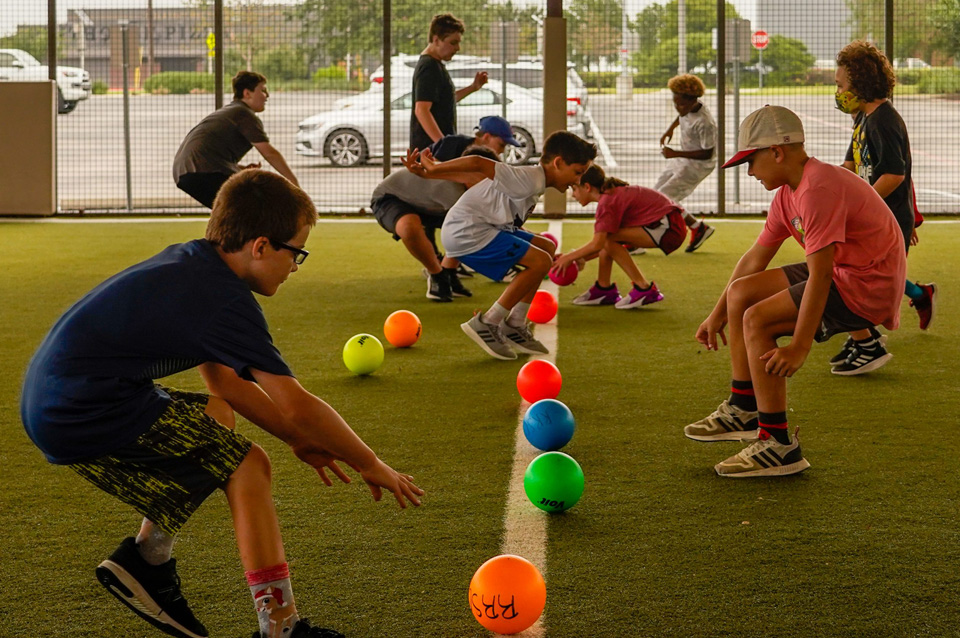
Are you ready to take your athletic performance to the next level? Fueling victory starts with understanding the critical role that nutrition plays in your success.
In this article, we will explore the science behind how proper hydration and fueling your body with the right nutrients can optimize your athletic performance.
We will also delve into pre-workout and post-workout nutrition strategies, as well as the importance of macronutrients in achieving peak physical condition.
Get ready to unlock your full potential by harnessing the power of nutrition!
Key Takeaways
- Proper hydration is crucial for optimal athletic performance, so prioritize drinking water before, during, and after exercise and consider including electrolyte-rich foods or sports drinks.
- Nutrient timing is important, so consume easily digestible carbohydrates before exercise for quick energy, hydrate during workouts, and prioritize protein intake after exercise for muscle repair and growth.
- Incorporate balanced meals or snacks before workouts, including carbohydrates for energy and protein for muscle repair. Consider pre-workout supplements like caffeine or creatine. Consume carbohydrates and protein within 30 minutes after exercise to replenish glycogen stores and stimulate muscle protein synthesis.
- Macronutrients play a key role in athletic performance, with carbohydrates providing energy, protein aiding in muscle repair and growth, and fats providing long-lasting energy and supporting hormone production. Nutritional supplements can complement a well-rounded diet, and timing of meals optimizes glycogen storage and muscle recovery.
The Importance of Proper Hydration
You need to prioritize proper hydration if you want to optimize your athletic performance. Hydration strategies play a crucial role in fueling victory on the field or in the gym. Caroline Fanning, an expert in sports nutrition, would emphasize the importance of maintaining electrolyte balance for peak performance.
One key hydration strategy is to drink plenty of water before, during, and after exercise. Staying adequately hydrated helps regulate body temperature and prevents dehydration, which can lead to fatigue and decreased performance. Electrolytes like sodium and potassium are also essential for maintaining fluid balance in the body. Including electrolyte-rich foods or sports drinks can help replenish these important minerals lost through sweat.
Additionally, monitoring urine color can provide valuable insights into hydration levels. Clear or pale yellow urine indicates proper hydration, while dark yellow or amber-colored urine suggests dehydration.
In conclusion, proper hydration is fundamental for optimizing athletic performance. By implementing effective hydration strategies and ensuring electrolyte balance, athletes can enhance their endurance, strength, and overall success on the field or court.
Fueling the Body with the Right Nutrients
Start by ensuring you're providing your body with the right nutrients. Nutrient timing plays a crucial role in optimizing athletic performance. It's not just about what you eat, but also when you eat it. Timing your nutrient intake can help fuel your workouts and aid in recovery.

Before exercise, focus on consuming easily digestible carbohydrates to provide quick energy. During workouts, hydration is key, so replenish fluids and electrolytes with sports drinks or water. After exercise, prioritize protein intake to aid in muscle repair and growth.
In addition to nutrient timing, sports supplements can also play a role in enhancing athletic performance. However, it's important to approach these supplements with caution and do thorough research before incorporating them into your routine. Some popular sports supplements include creatine for increased strength and power, caffeine for improved endurance, and branched-chain amino acids (BCAAs) for muscle recovery.
Remember that nutrition is highly individualized, so what works for one person may not work for another. It's essential to listen to your body and make adjustments as needed.
By fueling your body with the right nutrients at the right time and considering the use of sports supplements wisely, you can optimize your athletic performance and reach new heights in your fitness journey.
Pre-Workout and Post-Workout Nutrition Strategies
To optimize your workouts, consider incorporating pre-workout and post-workout nutrition strategies.
Timing considerations play a crucial role in maximizing athletic performance. Before your workout, aim to consume a balanced meal or snack that includes carbohydrates for energy and protein to support muscle repair and growth. Ideally, this should be consumed 1-3 hours before exercise to allow for proper digestion. Additionally, consider incorporating a pre-workout supplement such as caffeine or creatine to enhance endurance and power output.
Post-workout nutrition is equally important for recovery and muscle adaptation. Consuming a combination of carbohydrates and protein within 30 minutes after exercise can replenish glycogen stores and stimulate muscle protein synthesis. This can be achieved through whole foods like lean meats, dairy products, or plant-based alternatives, as well as supplementation options such as protein shakes or bars.
Remember that individual needs may vary depending on factors such as body composition goals and exercise intensity. Consulting with a registered dietitian or sports nutritionist can help tailor your nutrition plan to best suit your needs.
By paying attention to timing considerations and exploring supplementation options, you can fuel your body effectively for optimal athletic performance.

Incorporating a balanced diet rich in carbohydrates, protein, and fats is essential for optimizing athletic performance. When it comes to fueling your body for success, macronutrients play a vital role.
Carbohydrates are the primary source of energy for athletes, providing the necessary fuel to power through intense workouts and competitions. Protein is crucial for muscle repair and growth, aiding in recovery after strenuous exercise. Fats also have their place in an athlete's diet, as they help provide long-lasting energy and support hormone production.
To further enhance performance, many athletes turn to nutritional supplements. These supplements can include protein powders, amino acid blends, or sports drinks that replenish electrolytes lost during exercise. However, it's important to note that supplements should not replace whole foods but rather complement a well-rounded diet.
In addition to macronutrients and supplements, timing of meals also plays a significant role in maximizing athletic performance. Eating the right foods at the right times can optimize glycogen storage and promote muscle recovery.
By understanding the importance of macronutrients and incorporating them into your training regimen along with proper meal timing and supplementation when needed, you can fuel your victory on the field or in the gym while supporting optimal athletic performance.
Optimizing Recovery through Nutrition
To optimize your recovery, it's crucial to focus on nourishing your body with the right nutrients. One way to enhance recovery is through the use of nutritional supplements. These supplements can provide essential vitamins, minerals, and amino acids that promote muscle repair and reduce inflammation. Some popular options include protein powders, BCAAs (branched-chain amino acids), and omega-3 fatty acids.
In addition to incorporating supplements into your routine, the timing of meals also plays a key role in optimizing recovery. Consuming a balanced meal containing carbohydrates and protein within 30 minutes after exercise can help replenish glycogen stores and support muscle repair. It's important to prioritize nutrient-dense foods such as lean meats, whole grains, fruits, and vegetables during this post-workout period.
By strategically utilizing nutritional supplements and paying attention to meal timing, you can effectively fuel your body for optimal recovery. Remember that consistency is key when it comes to nutrition for athletic performance.
Frequently Asked Questions
What are some common hydration mistakes athletes make and how can they be avoided?
Avoid common hydration mistakes athletes make by staying well-hydrated, especially before, during, and after workouts. Don't rely on thirst alone; drink water regularly. Include electrolytes in your hydration plan to replenish minerals lost through sweat. Proper hydration improves athletic performance significantly.

Proper nutrition plays a crucial role in cognitive function and focus during workouts. Nutrient timing is key to optimizing mental performance, as it can enhance energy levels, concentration, and decision-making abilities. Stay fueled for success!
Looking for pre-workout snack options or meal ideas to fuel your athletic performance? Try a banana with almond butter, Greek yogurt with berries and granola, or a turkey and avocado wrap. These choices provide a balance of carbohydrates, protein, and healthy fats to energize your workout.
To optimize performance, athletes should aim for specific macronutrient ratios. Macronutrient timing and the effects of different ratios on endurance performance are crucial factors. Analyzing scientific evidence and research is necessary to make informed decisions about nutrition in athletic performance.
Are there any particular foods or supplements that can speed up recovery time after intense workouts?
To speed up recovery time after intense workouts, incorporating certain foods and supplements into your nutrition plan can be beneficial. Proper hydration, macronutrient ratios, and pre-workout snacks or meals all play a role in optimizing performance and fueling your body.
 SportsHollywoodLifestyleFashionHome & GardenTrendsPrivacy PolicyTerms And Conditions
SportsHollywoodLifestyleFashionHome & GardenTrendsPrivacy PolicyTerms And Conditions
